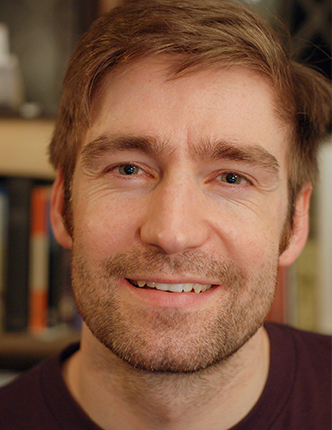I had a promising early research career but thought I’d never return
Raphael’s five-year career break whilst in his 20s was a time which saw Raphael take on caring responsibilities for his sick father who was suffering with bowel cancer. Additionally, he took on the running of his father’s transport company, taking on a management role for the business after his father passed away in 2013. It was after the business was handed over to new management, when Raphael decided to follow his passion and talent for physics and embarked upon a return to his former research career.
An inspiring young physicist
Raphael was once ranked in the top fifteen A level physics students in the country when he won a gold medal in the prestigious British Physics Olympiad. His love of the subject led to him to Cambridge University, obtaining a BA/MSci in Natural Sciences, and later a PhD involving the application of computational quantum chemistry. He published ten papers over the course of his PhD, a number which put Raphael in the top ten percent of his supervisor’s PhD students at Cambridge, in terms of research output.
Raphael says, “At the end of my PhD, my supervisor was keen for me to stay on as post-doctoral researcher. I felt split in what the best course of action was for me to take. My father was seriously ill with bowel cancer at the time. I decided he needed my help more, and decided to help him with the running of his business. I missed academia greatly but was unsure how to successfully return after five years out of the lab. I worried that my skills and knowledge were out of date, in particular computer programming methods had moved on.”
Raphael was actively looking for research opportunities when he found out about a Daphne Jackson Fellowship and the advertised opportunity in the School of Mathematical and Physical Sciences at the University of Sussex.
Raphael says, “I thought a Daphne Jackson Trust Fellowship sounded perfect. I felt not only would it be extremely helpful in enhancing my CV so I could apply for research jobs in the future, but also, I wanted to retrain and move into a new area of research.
“I was keen to take my expertise and interest in computational and mathematical modelling further, and apply it to a purer science area Astronomy was the perfect field and rekindled my excitement for my subject. My fourth-year undergraduate project had been a computational project concerned with the Square Kilometre Array radio telescope and the possibility of returning to astronomy filled me with enthusiasm.”
With the help of his Fellowship Advisor, Raphael selected undertaking a research project in data analysis in astronomy that would use his expertise in computational methods. He would also attend courses from the M.Sc., programme in astronomy at the University of Sussex, to remind him of some topics he had covered as an undergraduate as well as learn new material needed for the research project.
Raphael says, “I was ecstatic, excited and nervous when I heard I was awarded the retraining Fellowship. I felt confident that the schedule and my research project, developed with the help of the Trust and under the guidance my supervisors, would enable me to retrain but also reach a point where I could achieve at least one new publication before the end of the Fellowship.”
Raphael says, “I’m enjoying it immensely. I’m confident my Fellowship will be instrumental and benefit me greatly in my future science and research career. Taking the first step back into academia has been challenging but I believe the Daphne Jackson Scheme provides a great foundation on which to build a long and successful career in research.”
Raphael’s tips for returners
- Consider how your career break and work outside academia can provide you with some relevant skills to apply to your return to research such as leadership, networking and presentational skills. They all are useful skills for researchers who want to advance in a scientific career. Often what you did outside academia can give you a unique skill set.
- The challenge of finding the right project is to find a field that is exciting and ambitious but also realistic, with definite and achievable outcomes.
Dr Shirley’s Fellowship is sponsored and hosted by the University of Sussex under the supervision of Dr Jonathon Loveday.

